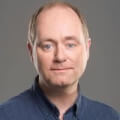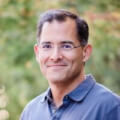The fast and the curious – optimized development of high performing AAV vectors

Adeno-associated virus (AAV) forms the basis of one of the most promising and versatile vector systems for therapeutic human gene transfer. The genetic simplicity and low immunogenicity, paired with high plasticity and amenability to engineer and repurpose the viral capsid and genome, make it a popular choice for gene therapy.
In this webinar, our distinguished guests, Dr. Dirk Grimm and Dr. David Schaffer will
Discuss the concept of using directed evolution to engineer highly optimized variants of AAV for a broad range of cell and tissue targets.
Introduce key technologies for targeted modification and directed evolution of critical AAV components
Address vector delivery barriers using directed evolution approaches
Attendees will discover novel approaches to:
- Configure viral vectors to mitigate toxicity from dosage and immunogenicity
- Prevent off-target viral delivery in healthy tissues
- Leverage directed evolution strategies based on two fundamental steps of natural evolution: creation of a gene pool and selection of the fittest serotype
- Select, create, and develop a top performing AAV viral vector to enable gene therapy
You might also like

Advances in the separation and analysis of AAV-based gene delivery vectors

Development of an automated AAV capsid titer assay on a high-throughput platform

Considerations in leveraging the Universal AAV Standard for dPCR to assess AAV genomes quantity and quality

Enabling early AAV characterization: the role of mass photometry in upstream process development



